

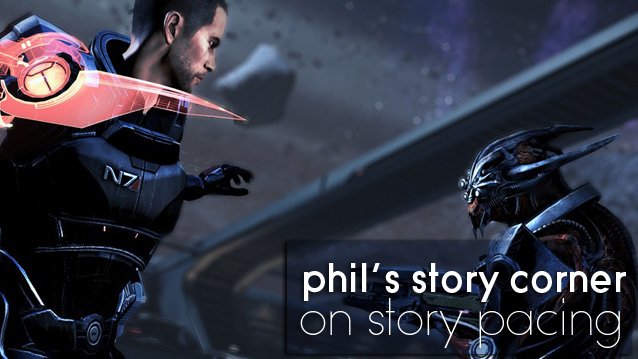
Judging by the hordes of folks who like to play every new Call of Duty game on Veteran difficulty, I guess there is a section of the population who wants their games to be hard to beat. I am, however, not one of these people. I don't necessarily want a game to be easy, but I don't want to die too many times on my way through it.

I feel that way because I place story above everything else in my games. I play because I want to experience a tale from within it, as a character playing an important role. I don't play games, for the most part, because I want a stellar gameplay experience. That would just be a bonus, most of the time.
So when I play a game like Uncharted 3, I do it because I want to experience a new Nathan Drake adventure, and not because the thought of fighting through endless waves of very tough bad guys excites me. No, sirree Bob.
In a game like Uncharted or Mass Effect, which we buy because we care about the story, pacing is very important. And I don't just mean story pacing. Gameplay pacing needs to be paramount.
When I find myself on a big sinking ship in Uncharted 3, I should be able to save myself without dying over and over again because Naughty Dog decided to throw four or five waves of grenade-launching bad guys at Drake when he's trying to get out of the cargo hold.
Before that point, I had been greatly enjoying that game. Sure, I could tell that the difficulty (I was playing on Normal) had been ramped up a bit, and I had died more often than I did in the previous two games, but it wasn't killing the pace.
But when you're in this ship trying to escape as water rushes in through a hole in the side, things need to really start moving. But they don't. Instead, you're forced to fight a series of protracted and very tough battles on your way out, and you will die several times while you try to figure out where each new wave of enemies is coming from. What should be a wildly excited set piece becomes an exercise in tedium that lasts far longer than it should and is, quite frankly, frustrating.
An Uncharted game should never be frustrating on the default difficulty. Any typical gamer should be able to fight through it without stumbling too many times because it is paramount that you be able to move through the story efficiently. The sinking ship scenario should be breakneck and exciting, but making it difficult keeps that from being the case.
Mass Effect 3, on the other hand, is one of the best shooters of the year because on the default difficulty the battles are large and wild and exciting but never overwhelming. Victory is always within your grasp. The game is not trying to punish you.
Mass Effect 3 is a model of efficiency because of that. You won't get bogged down fighting. You are constantly moving toward your objectives instead of being forced to stop in your tracks and retry a section over and over again. Yes, you may die occasionally, but you won't die repeatedly. Thus, the story moves along at an excellent clip.
 The comparison there is remarkable because Mass Effect 3 is a much longer game than Uncharted 3, but Mass Effect 3's length isn't bloated by its difficulty.
The comparison there is remarkable because Mass Effect 3 is a much longer game than Uncharted 3, but Mass Effect 3's length isn't bloated by its difficulty.
Call of Duty: Black Ops 2 is also an exemplar in pacing thanks to its branching plot. In that game, you can fail to achieve your objectives, and the game will often just move on anyway. Shit just goes, and you won't get stuck reliving that race against time over and over again. Sure, there are story consequences, but you're only going to have to try again in many cases if you choose to, and not because the game makes you. This idea actually adds to the sense of accomplishment you get when you actually are able to succeed. Being able to save Karma at your first opportunity feels great, for example, and far better than it would if the game required you to do so.
What matters when you're trying to make a game with a story is that the story keeps going. The developers should make it so you can experience it fully in an efficient manner. This is actually why I usually prefer games to be on the shorter side, because those are usually not filled with extraneous gameplay that doesn't serve the greater plot. When a campaign lasts only eight hours, it is less likely to contain filler. Uncharted 3 is a big offender here; the entire sinking ship sequence and the chapter before it are completely irrelevant to the story. Halo 4 is another offender with its arena battles in which you have to go around flipping switches to make something work in order to progress. Those sequences stop the story in its tracks, and they happen way too often.
The reason developers don't usually prioritize pacing is because they see the story merely as a reason for the campaign to exists. Folks have been making campaigns for a long time, and gamers expect them, and so developers just come up with an excuse for a series of fights. Even Naughty Dog did this; Amy Hennig admitted they came up with the idea for the sinking ship sequence before writing the story. Unfortunately, they were unable to come up with a good plot reason for it, and they botched the execution, too.
If you're going to bother with a story, you have to make it a priority. It doesn't have to be deep or emotionally devastating or powerful. It just needs to be coherent and tight, and the gameplay has to serve it. Without those things, the pacing will be off, and it won't be as enjoyable as it should be.
None of this is to say gameplay is not important. But there can be no excuse for gameplay that serves no story purpose, if you have a story. It is single to have a good gameplay experience and also have a story with good pacing, as Treyarch and BioWare have proved. But until everyone else figures out how to do that, those developers will be in the minority.
Phil Owen can be reached out on Twitter at @philrowen.

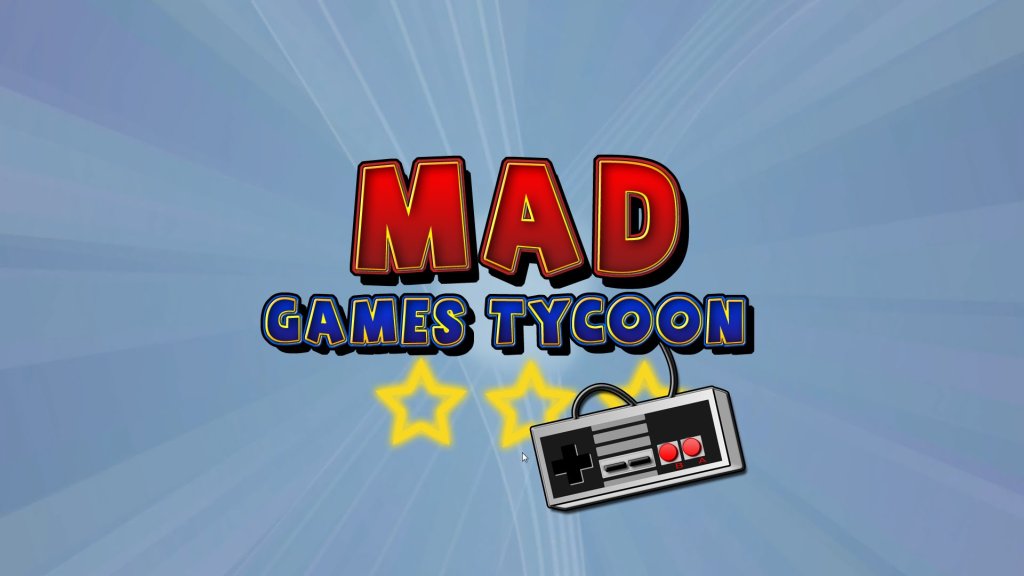
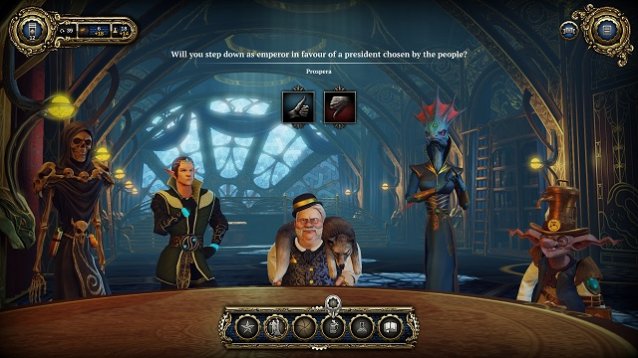

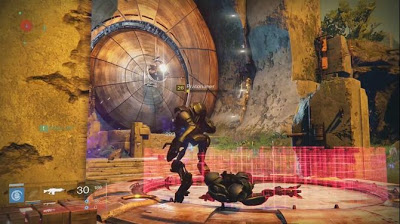 Destiny (PC) Raid The Transparent Chamber
Destiny (PC) Raid The Transparent Chamber Dark Souls 2 Ashen Mist Heart and Memories of the Ancients
Dark Souls 2 Ashen Mist Heart and Memories of the Ancients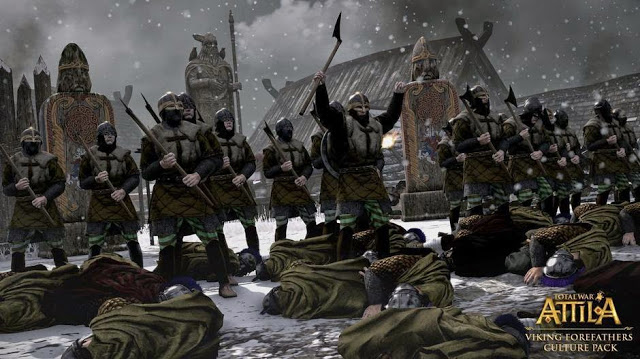 Total War: Attila (PC) review
Total War: Attila (PC) review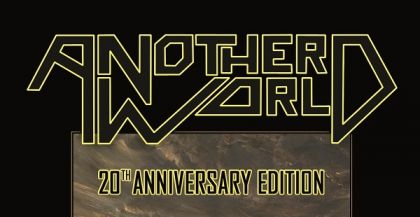 Another World: 20th Anniversary Edition Complete Video Walkthrough for All Chapters
Another World: 20th Anniversary Edition Complete Video Walkthrough for All Chapters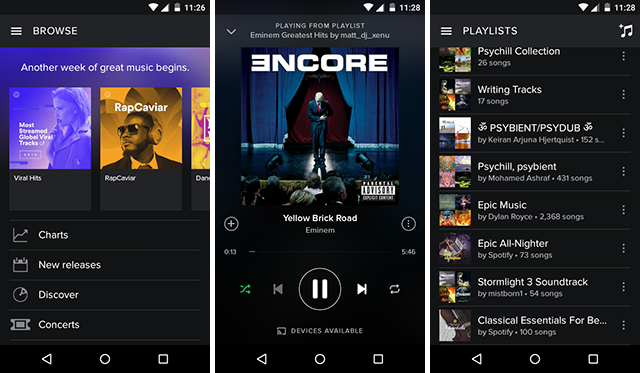 What Is the Best Way to Stream Music for Free on Android?
What Is the Best Way to Stream Music for Free on Android?